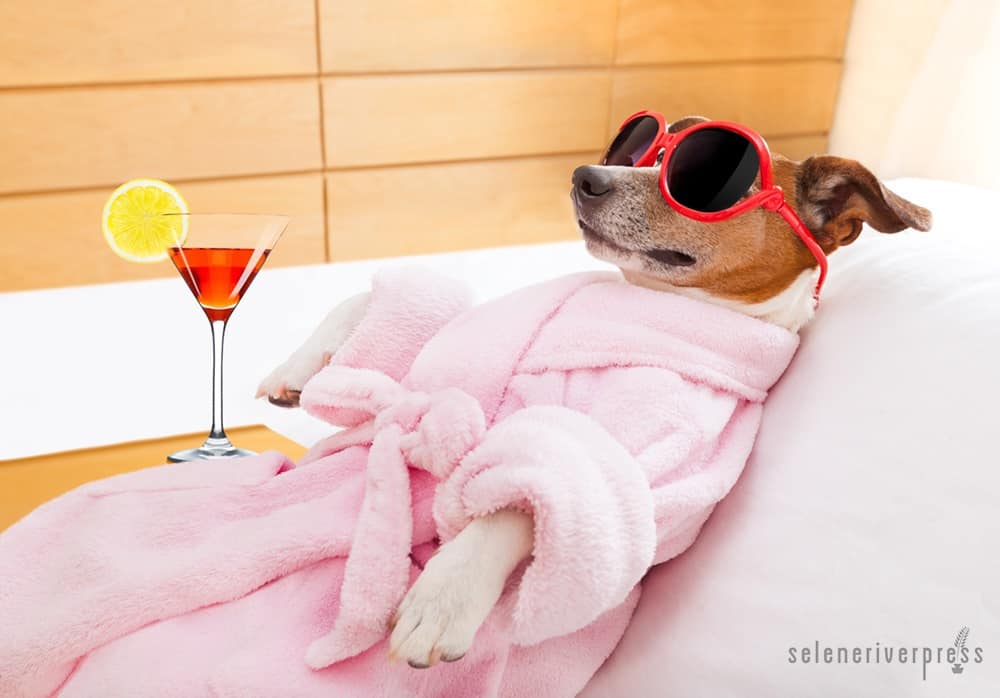Remember when a trip to the veterinary clinic would focus mainly on topics such as vaccinations and fecal exams? Well, today’s veterinarians are more aware of alternative care than ever before. Veterinarians, just like their counterparts in human medicine, now provide acupuncture, chiropractic care, laser treatment, stem cell treatment…the list goes on and on.
Why, you ask? Many veterinarians are seeing an increased litany of problems: relapses, incomplete responses to medication, chronic cases, allergies, reproductive and GI issues, and behavioral concerns. And our favorite—skin problems.
For a practitioner, this can be very frustrating. When a larger or repeat dosage of antibiotics and/or steroids doesn’t have an equivalent effect on the patient, such a course of action cannot be the right answer. Consequently, veterinarians have been looking for something different, something more. In fact, our very own Dr. Tom Cameron first began using homeopathy not only for himself and his family but also within his veterinary practice—with some very positive results. With experience and research, Dr. Cameron discovered that nutrition complements homeopathy in a big way. Improving nutrition helped the animals respond better to medication. They needed it for shorter periods of time and at lower levels. Today, Dr. Cameron stresses the importance of nutrition. As he says, “Every case has a nutritional component.”
So what do you say or do when your veterinarian recommends one of these modalities for your pet? First, it’s important to understand the What and Why regarding any unconventional treatment that your veterinarian proposes. Let’s talk about a few of them.
Chiropractic Care
Chiropractic care is an excellent way to prevent and treat joint degeneration. Proper vertebral alignment can keep your pet from shifting into unhealthy positions in an effort to compensate for joint pain caused by injury or degeneration.
Did you know that “chiropractic” comes from the Greek words cheir (hand) and praxis (done by hand), and that it’s based on manual spinal manipulation? It uses the body’s own healing abilities, and the relationship between the spine and the nervous system, to rebuild and support good health.
In the last twenty years, chiropractic care has gained acceptance in the conventional veterinary world, yet it’s been an accepted form of therapy for humans for centuries.
Conditions that often respond well to chiropractic care include (but are not limited to): neck and back pain; bowel, bladder and other internal organ disorders; and injuries from slips, falls, accidents, etc. Most animals respond well to adjustments. Because they’re instinctively aware of the problem in their body, the majority of the time they will tolerate the chiropractor’s manipulations.
You can search for a certified animal chiropractor in your area at the American Veterinary Chiropractor Association and the College of Animal Chiropractic.
Acupuncture
This popular modality has been used in China for thousands of years to create a healing response in the body. The insertion of needles into certain points of the body where nerve bundles and blood vessels intersect enhances blood circulation and stimulates the release of hormones. The goal is to encourage the body to correct imbalances. These days, more and more pet parents are trying acupuncture for their dogs and cats. Acupuncture is virtually painless for most animals, and many owners find their pets become relaxed or even sleepy when the needles are in place. You and your veterinarian might consider acupuncture for pain management as well as musculoskeletal, gastrointestinal, and respiratory problems, to name a few.
To find a holistic veterinarian who performs acupuncture, visit the American Holistic Veterinary Medical Association.
Whole Food Supplements and Diet
Whatever you and your veterinarian choose, always remember that, for any pet, nutrition will always be the important first step toward natural health and balance. Bear in mind Dr. Royal Lee’s reminder that “the body cannot make something out of nothing.” A proper diet along with the veterinarian line of Standard Process whole food supplements will complement and enhance any treatment.
Some veterinarians use conventional and alternative therapies on a case-by-case basis, recognizing that modern veterinary techniques such as ultrasound, laboratory tests, and surgical procedures are necessary in caring for animals. But they likewise believe that alternative medicine modalities such as herbal medicine, whole food supplements, chiropractic care, acupuncture, etc., have a significant role to play. All veterinarians who strive to offer the very best level of care should be encouraged to explore the many types of alternative medicine that are available today.
Photo from iStock/damedeeso


